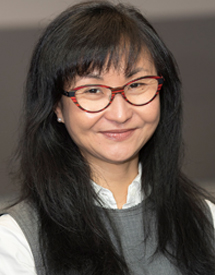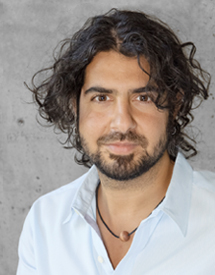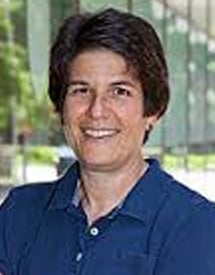You have /5 articles left.
Sign up for a free account or log in.
The Canadian government on Thursday announced the selection of 24 internationally based academics who will assume new positions at Canadian universities as Canada 150 Research Chairs, seven-year academic positions that come with annual government funding of either 350,000 (about $271,600) or 1 million Canadian dollars (about $776,000). What the Canadian government is proclaiming in a press release as a “brain gain” is arguably a brain drain for the U.S., where just over half of the new Canada 150 Research Chairs are currently working. The one-time funding for the program was announced last year to coincide with Canada’s sesquicentennial celebration.
 “How many countries celebrate a 150th birthday by giving a lot of money to support science and research?” asked Anita Layton, one of the new Canada 150 Research Chairs and currently the Robert R. and Katherine B. Penn Professor of Mathematics at Duke University. “I find that incredible. You don’t see that very often.”
“How many countries celebrate a 150th birthday by giving a lot of money to support science and research?” asked Anita Layton, one of the new Canada 150 Research Chairs and currently the Robert R. and Katherine B. Penn Professor of Mathematics at Duke University. “I find that incredible. You don’t see that very often.”
Layton, who applies mathematical models to physiological and medical questions, has accepted the Canada 150 Research Chair in Mathematical Biology and Medicine at the University of Waterloo. Layton said there were many factors. Professionally, she was lured by the generous support for her research offered by the award and the opportunities at Waterloo, which has a whole faculty -- the American equivalent of a school -- dedicated to mathematics. Layton, a Canadian citizen who grew up in Hong Kong and received her Ph.D. at the University of Toronto, said personally she is excited about the chance to be closer to her parents, who live in the Toronto area.
Beyond that Layton cited her concerns about gun violence in the U.S. in an interview about the chairs with The Globe and Mail. “In Canada that has not been normalized,” she told Inside Higher Ed. “I also appreciate that in Canada you have a prime minister who believes in and promotes diversity. That is good, because I am very into promoting women and underrepresented groups in science and math and I find a lot of support where I’m going, true support -- not just pat you on the back, that’s awesome.”
Forty-two percent of the selected chairs are expatriate Canadians returning home, and 58 percent are women, according to the government press release announcing the winners. Thirteen of the 24 chairs are currently based at U.S. universities -- including Brown, Harvard and Johns Hopkins Universities, three different University of California campuses, and the University of Michigan -- while the others work at institutions in Australia, Austria, Britain, New Zealand and South Africa.
As is the case with any kind of international mobility, there are push and pull factors, and the pull factor of the funding package is important. But Vivek Goel, the vice president of research and innovation at the University of Toronto, which will host three of the chairs, suggested it's not just about the monetary value of the research chair awards. "What the Canada 150s are actually signaling is the openness of the environment in Canada to multiple cultures, which is really important for science," he said.
Goel said that at an event honoring the chairs on Thursday one of the awardees from the U.K. spoke about the impact of Brexit. "I think it is set in a broader global context … people are seeing that there are many other jurisdictions that for whatever reasons are turning inwards, and exploring science requires an environment that is more open diverse and inclusive. They see Canada as a place that they can come and continue to work. For us in Canada, it’s really exciting to see people responding to a program like this in that way.”
 For Alán Aspuru-Guzik, a theoretical and computational chemist who is leaving his professorship at Harvard to assume a Canada 150 Research Chair at Toronto, the political environment in the U.S. was a primary push factor. After the election of Donald Trump, he said, “I said this is not the right place to raise my children, so I looked abroad.”
For Alán Aspuru-Guzik, a theoretical and computational chemist who is leaving his professorship at Harvard to assume a Canada 150 Research Chair at Toronto, the political environment in the U.S. was a primary push factor. After the election of Donald Trump, he said, “I said this is not the right place to raise my children, so I looked abroad.”
“I was looking to move. I was strongly considering moving to Canada -- I was negotiating” with Canadian universities, said Aspuru-Guzik, who holds dual citizenship in the U.S. and Mexico. “Canada 150 came in and kind of sealed the deal.”
 For others the professional opportunities were paramount. “The investment of the Canadian government into the University of Saskatchewan in my area, which is hydrology, climate, water resources in general, has just been phenomenal in particular over the past decade,” said Jay Famiglietti, who is leaving his position as a senior water scientist at the National Aeronautics and Space Administration jet propulsion lab at the California Institute of Technology for a Canada Research 150 chair at Saskatchewan. “It has allowed the U of S to really burst onto the international hydrology scene to do some fantastic recruiting and to do things like start the Global Institute for Water Security and the Global Water Futures programs. These are amazing programs, so, truthfully, it’s one of the best places in the world to be right now.”
For others the professional opportunities were paramount. “The investment of the Canadian government into the University of Saskatchewan in my area, which is hydrology, climate, water resources in general, has just been phenomenal in particular over the past decade,” said Jay Famiglietti, who is leaving his position as a senior water scientist at the National Aeronautics and Space Administration jet propulsion lab at the California Institute of Technology for a Canada Research 150 chair at Saskatchewan. “It has allowed the U of S to really burst onto the international hydrology scene to do some fantastic recruiting and to do things like start the Global Institute for Water Security and the Global Water Futures programs. These are amazing programs, so, truthfully, it’s one of the best places in the world to be right now.”
 "As a Canadian, the idea of returning back to Canada and teaching at a public institution was really fantastic," said Wendy Hui Kyong Chun, who will be leaving her position as a professor of modern culture and media at Brown University for Vancouver's Simon Fraser University, where she'll be heading up a new lab group dedicated to issues related to how the internet affects politics, society and culture. "Brown's been fantastic. I’ve enjoyed my 19 years there, but I’ve reached a point where I want to teach again in a public institution and be in a country that’s dedicated to public education. Also, the opportunity is fantastic to set up a digital democracies group, to work across disciplines, to take on some of the pressing issues that we have right now."
"As a Canadian, the idea of returning back to Canada and teaching at a public institution was really fantastic," said Wendy Hui Kyong Chun, who will be leaving her position as a professor of modern culture and media at Brown University for Vancouver's Simon Fraser University, where she'll be heading up a new lab group dedicated to issues related to how the internet affects politics, society and culture. "Brown's been fantastic. I’ve enjoyed my 19 years there, but I’ve reached a point where I want to teach again in a public institution and be in a country that’s dedicated to public education. Also, the opportunity is fantastic to set up a digital democracies group, to work across disciplines, to take on some of the pressing issues that we have right now."
 “From both a professional and personal standpoint, it makes a lot of sense,” said Azim Shariff, who will leave his associate professorship at the University of California, Irvine, to take up the Canada 150 Research Chair in Moral Psychology at the University of British Columbia. Shariff is from Vancouver and has family and professional networks there. “These are very substantial opportunities through the Canada 150 program, a lot of research funds, which afford a lot of freedom to grow my science and employ more postdocs.”
“From both a professional and personal standpoint, it makes a lot of sense,” said Azim Shariff, who will leave his associate professorship at the University of California, Irvine, to take up the Canada 150 Research Chair in Moral Psychology at the University of British Columbia. Shariff is from Vancouver and has family and professional networks there. “These are very substantial opportunities through the Canada 150 program, a lot of research funds, which afford a lot of freedom to grow my science and employ more postdocs.”
He added, not incidentally, that when he finished graduate school at UBC, he and many of his peers ended up in the U.S. because that's where they found more and better jobs. "That’s why a lot of us [brain] drained in the first place. This affords me the opportunity to kind of brain gain back."
At the same time, Shariff said that Canada seems a safer bet right now for him than the U.S. “I don’t want to paint too dreary a picture of the United States -- the latest budget has increases in science funding for the major agencies. Maybe the United States is a little less predictable from both a short-term and a long-term perspective, especially for somebody who is not a citizen, and is a minority maybe. There are horror stories that you hear about people whose immigration status is not firm. I have an H-1B visa; I’d be applying for a green card -- who knows how that would go. These are all uncertainties that maybe contributed a little bit, not hugely,” to the decision, he said.
 Margo Seltzer, who is leaving her position at Harvard as the Herchel Smith Professor of Computer Science for a Canada 150 Research Chair at UBC, said she thinks there will be graduate students who will be unable to come to the U.S. because of immigration policies who will be able to go to Canada, and that will create opportunities there. "I think [there's] a lot of excitement around Canada’s openness and the fact that this program is a way they chose to celebrate their 150th anniversary," Seltzer said. "The beauty of the C150 is not simply the funding available. It’s the very explicit commitment of the government, as evidenced thorough programs like C150, as evidenced by budget 2018, that make it clear that there really is a national understanding of the importance of science." Canada's recent budget, announced last month, included substantial increases in science and research funding.
Margo Seltzer, who is leaving her position at Harvard as the Herchel Smith Professor of Computer Science for a Canada 150 Research Chair at UBC, said she thinks there will be graduate students who will be unable to come to the U.S. because of immigration policies who will be able to go to Canada, and that will create opportunities there. "I think [there's] a lot of excitement around Canada’s openness and the fact that this program is a way they chose to celebrate their 150th anniversary," Seltzer said. "The beauty of the C150 is not simply the funding available. It’s the very explicit commitment of the government, as evidenced thorough programs like C150, as evidenced by budget 2018, that make it clear that there really is a national understanding of the importance of science." Canada's recent budget, announced last month, included substantial increases in science and research funding.
Alex Usher, the president of Higher Education Strategy Associates, a Toronto-based consulting firm, said, however, that the Canada 150 Research Chairs program has been viewed skeptically by some researchers in Canada. The increase in funding for science announced as part of the budget has eased that skepticism somewhat, Usher said, but not entirely. "I don’t think this kind of initiative is ever going to be particularly warmly welcomed by the scientific community here, not for what you might imagine [are] the sort of typical we-don’t-want-foreigners-coming-in-here-and-stealing-our-jobs stuff. At Canadian universities we hire loads and loads of foreign-educated people anyway. It’s genuinely, why would you go with a superstar strategy when you can’t feed the base?"
“Basically what it comes down to is, do we have the funding ecosystem that’s actually going to be able to sustain itself and the new arrivals in the long term, or are we engaging in a bait and switch?" he asked.
The Canada 150 Research Chairs program comes on the heels of France’s Make Our Planet Great Again program, which provided grants to 18 climate scientists, 13 of whom were from the U.S., to relocate to France. As in the case of the Canadian program, that initiative was criticized by some as gimmicky or as not the best use of science funding.
Which raises the question: How big an impact do programs like this have?
"It's a commitment of the government to higher education and science, which will make the entire sector feel good, but is it a revolutionary development? Absolutely not," said Philip Altbach, a research professor and founding director of the Center for International Higher Education at Boston College. "Is it a huge blow to American science? Not really. But it’s not good. Because very talented people are leaving."
"For the same reason it sort of boosts the morale in Canada, more significantly than the facts would account, I think it lowers the morale slightly here for the same reason. We’re losing some of the best and brightest, only because other people are poaching and we’re not keeping up."






